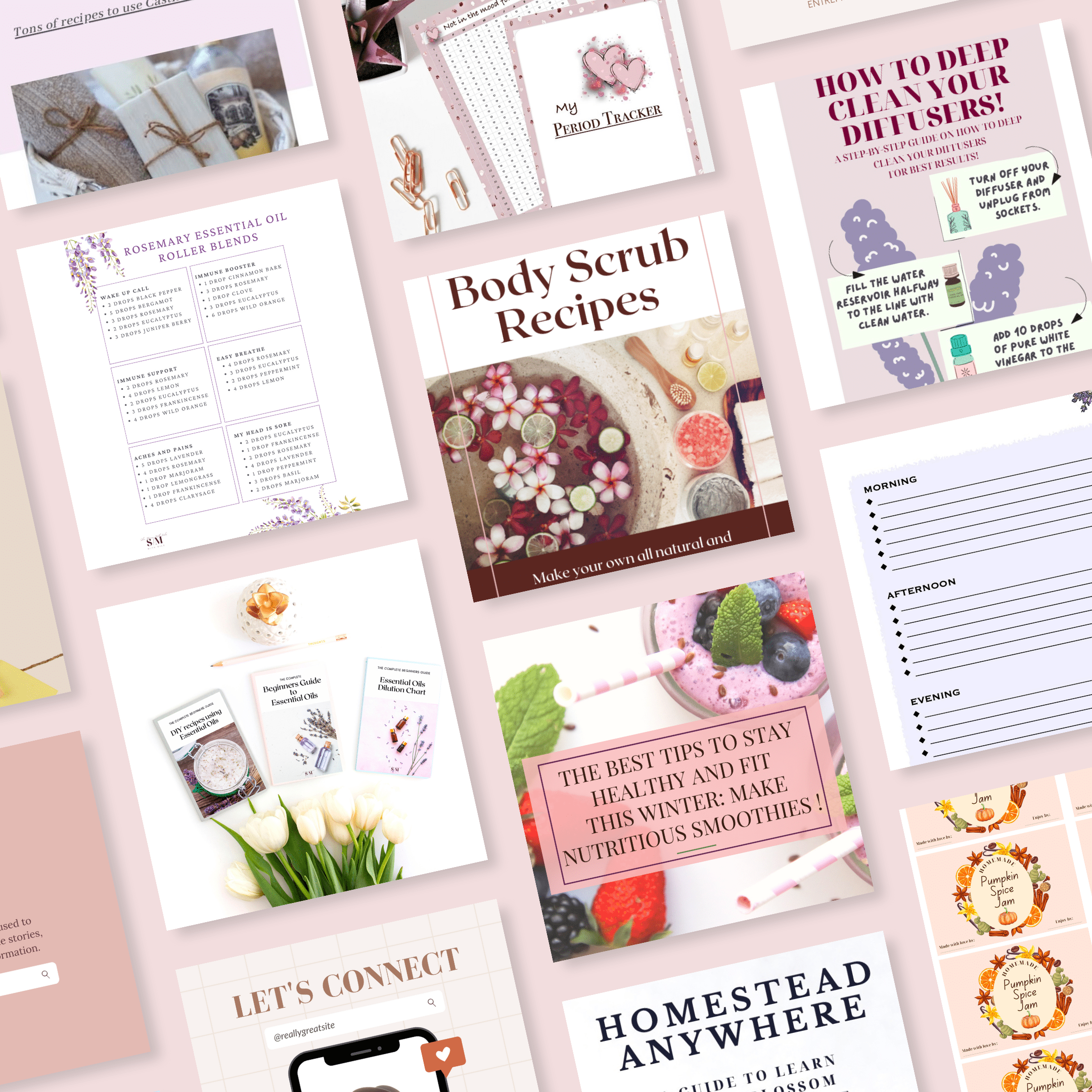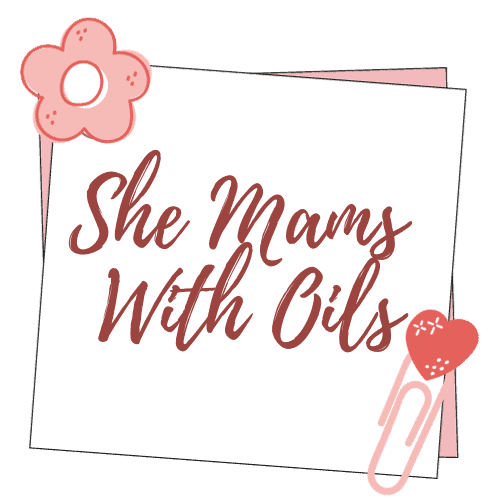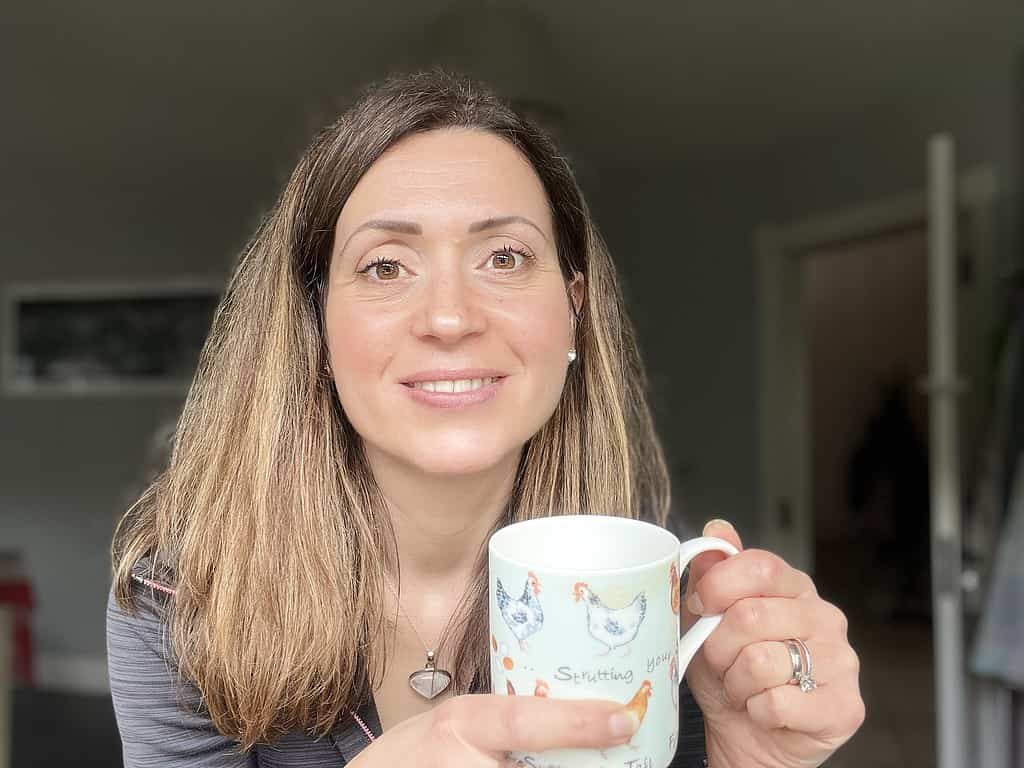HOMEMADE NON TOXIC FABRIC SOFTENER RECIPE
Homemade non toxic fabric softener recipe!
Ever wondered how do you make cheap fabric softener? I have the perfect recipe for you.
To make an effective and inexpensive fabric softener, simply use plain white vinegar and essential oils.
Read this post to learn exactly how to use those natural and simple ingredients.
Plus, see the FAQs section.
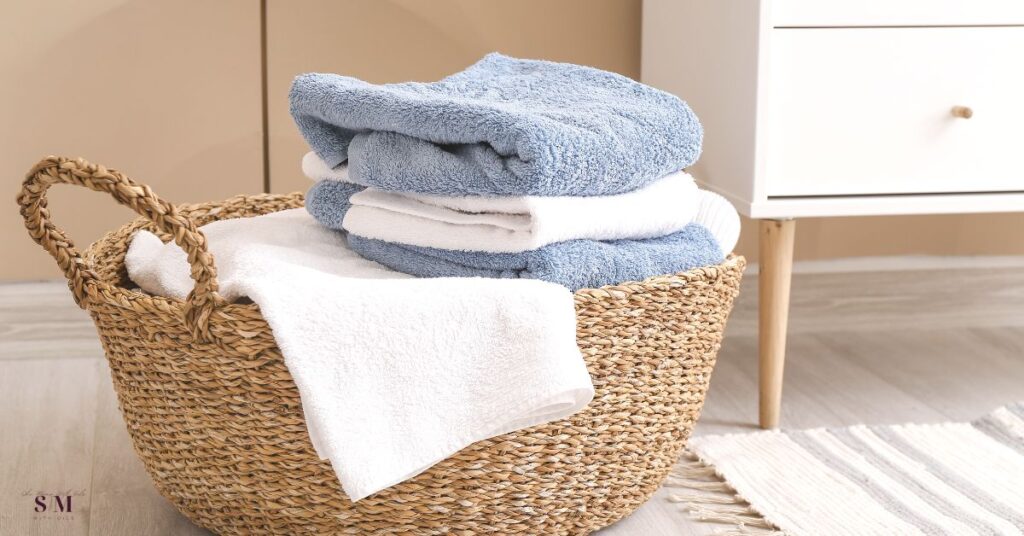
The following post may contain affiliate links, which means I’ll get a small commission if you decide to buy using the links provided. This will add NO EXTRA COST to you but it helps me to keep this blog up and running. Thank you. You can get more info by reading my Disclaimer page.
Don’t you just love that smell of freshly washed clothes? Me too!
But I don’t like using store-bought fabric softeners!
I much rather make my own simple homemade non toxic fabric softener recipe!
It takes only a couple of minutes to make, and it costs a fraction of the price. Most importantly, I know exactly what’s inside it.
BEST HOMEMADE NON TOXIC FABRIC SOFTENER
While conventional fabric softeners are loaded with toxic ingredients that are harmful for you, there are so many natural alternatives to them.
This homemade fabric softener recipe I’m sharing here is a very good option for you to keep in your laundry room.
It’s safe and completely natural and the best part is you can use it even if you have little time at your disposal!
Vinegar is cheap and non toxic and works wonders as a natural fabric softener alternative.
is laundry detergent bad for you?
Regular, commercially produced laundry products you find at the grocery store are indeed very bad for you and the environment. They are loaded with toxic chemicals and artificial scents. They can cause skin irritation and also cancer.
That is the main reason why I stopped buying them.
Thankfully for you, there is a great alternative to them, such as making your own laundry soap or DIY fabric softener recipe.
is fabric softener bad for you?
Although the temptation of using pre made commercial fabric softeners might be great, those mass produced items are indeed very bad for you and for the environment.
According to this article, “in-wash fabric softeners and heat-activated dryer sheets pack a powerful combination of chemicals that can harm your health, damage the environment and pollute the air, both inside and outside your home.”.
WHAT CHEMICALS ARE USED IN FABRIC CONDITIONER?
Following up from the same article, fabric conditioners can contain several chemicals that are indeed known to cause health problems.
To name just a few:
QUATS
To be honest, I had never heard of this “ingredient”!
Quats, or quaternary ammonium compounds, are what make your clothes feel soft after washing.
They are derived from lipids, and basically coat your clothes in a fatty layer, making them smoother and softer to the touch.
However, they are known to trigger asthma, and can have negative effect on the reproductive system.
Among them, look out for
- distearyldimonium chloride,
- diethyl ester dimethyl ammonium chloride,
- variants of hydroxyethyl methyl ammonium methyl sulfate,
- biodegradable fabric softening agents,
- cationic surfactant.
It is best to avoid all the above ingredients.
SYNTHETIC FRAGRANCE
According to the article mentioned, there are over 3000 fragrance ingredients in common household commercial products. Unfortunately for us, the word fragrance is very vague, and we as consumers have no way to know exactly what is inside them. “Your fabric softener may contain phthalates, which disperse the scent; synthetic musks such as galaxolide, which accumulate in the body; and much more. Fragrance mixes can cause allergies, skin irritations such as dermatitis, difficulty breathing and potential reproductive harm. Research indicates that scents also cause irritation when vented outdoors, especially for asthmatics and those sensitive to chemicals”.
PRESERVATIVES AND COLORS
Two more vague terms to add to the list!
In fact, preservatives can refer to so many different ingredients. Same goes for colours!
Look out for methylisothiazolinone, a known skin allergen, and glutaral (or glutaraldehyde), known to trigger asthma and skin allergies.
The latter is also toxic to marine life.
Some colours are linked to cancer.
In my opinion, it’s really not worth it!
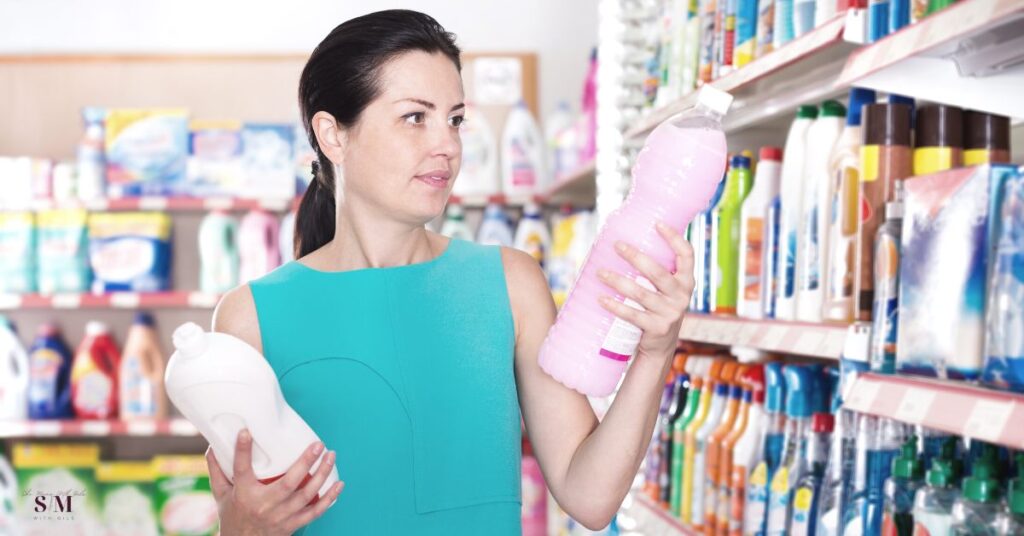
Do you really need fabric softener? Is fabric softener really necessary?
As if all of the above wasn’t enough, fabric softener isn’t actually good for your clothes.
Indeed, that stuff will cling to your fabrics and will render them soggy and waxy.
That is particularly obvious on towels and sports gear. When you use regular fabric conditioner on those items, they lose the ability to dry your skin!
Can you make your own natural fabric softener?
After having considered all the negative effects of using commercially produced conditioners, I hope you will give homemade non toxic fabric softener a try.
How do I make my own laundry softener?
Making your own fabric softener, all natural and non toxic, is super easy. You will only need a couple of natural products that you already have at home.
You don’t even have to make it ahead of time. Just pour in your fabric softener dispenser and go!
Read on for my recipe!
BEST HOMEMADE NON TOXIC FABRIC SOFTENER RECIPE
This is what I’ve been using for the longest time in my laundry routine, so this recipe is definitively well tested and tried!
When you are loading your washing machine, use your regular soap (or make your own homemade laundry detergent!). Place 1 tablespoon only of plain white vinegar in the liquid softener compartment and you are good to go!
Simply run your washing machine as per normal.
Your clothes will come out perfectly clean and without any static or soap residue in them.
For best results
You can add 1 or 2 drops of your favorite essential oil to the vinegar.
This is totally optional, but I recommend it as the oils will leave a lovely smell on your clothes.
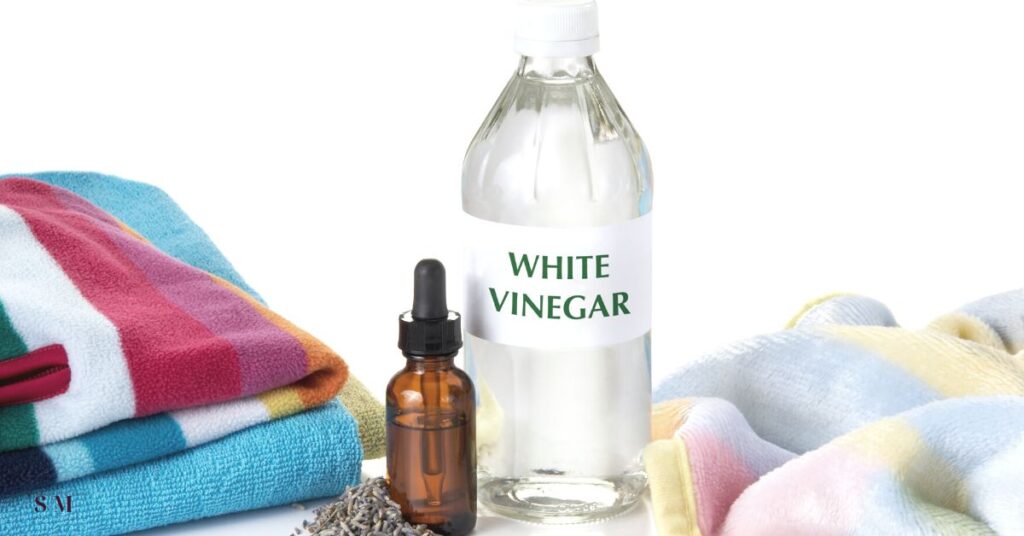
How can I make my clothes smell good without fabric softener?
If you have been using regular fabric conditioner for a long time, you are probably used to the smell it leaves on clothes.
Indeed, getting rid of this habit is probably the worst part of swapping to an all natural DIY fabric conditioner.
If you are worried about a vinegar smell on your clothes, fear not!
In fact, it is very possible to have your laundry smelling nice even without using commercial fabric conditioners.
Can I add essential oils to fabric conditioner?
As mentioned above, artificial fragrances can be very harmful to your health.
For an all natural scent alternative, just add essential oils to your laundry!
This is totally optional but it adds a lovely smell to your clothes.
You can also check this recipe for all natural laundry scent booster!
important
Only use 100% unadulterated and pure essential oils, from a reputable company.
Never use essential oils topically unless properly diluted, and only use them after a patch test. This is particularly important if you have sensitive skin.
Pay particular attention if you are pregnant, breast-feeding, or on older people and young children.
Some people might develop skin irritations or adverse reactions.
Never ingest essential oils without reading the label first, as not all oils can be consumed internally.
Always talk to your trusted medical practitioner and/or certified aromatherapist before using essential oils, especially if you suffer from any allergy, intolerance, are ill or are already taking any medication.
What essential oils are good for fabric softener?
You can choose among many essential oils. It really depends on your preference and what you have available.
I personally love to use rosemary and lavender, but any citrus or flower oil will work very well.
For example, among my favorite scents, you can use:
- Rosemary essential oil;
- Lavender essential oil;
- Lemon essential oil;
- Wild orange essential oil;
- Lemongrass essential oil;
- Lime essential oil;
- Tea tree essential oil;
- Etc.
What happens if you use vinegar and laundry detergent together?
Although adding vinegar to your wash is a good idea, you cannot mix it with your laundry detergent. You need to use the 2 ingredients separately.
Indeed, while vinegar is acidic, the majority of detergents are alkaline. Therefore, when you mix them, you basically neutralise them both. This in turn will lead to your clothes not being washed thoroughly and turning greasy. Not pleasant at all!
The best thing to do, is to add the vinegar to the rinse cycle only, so it never mixes with the detergent you use in the wash cycle.
Where do I put vinegar in washing machine?
To prevent the vinegar from mixing with laundry detergent, only add 1 tablespoon in the liquid fabric softener compartment of your appliance. This way, the vinegar will not mix with the detergent, and will only be used in the rinsing cycle.
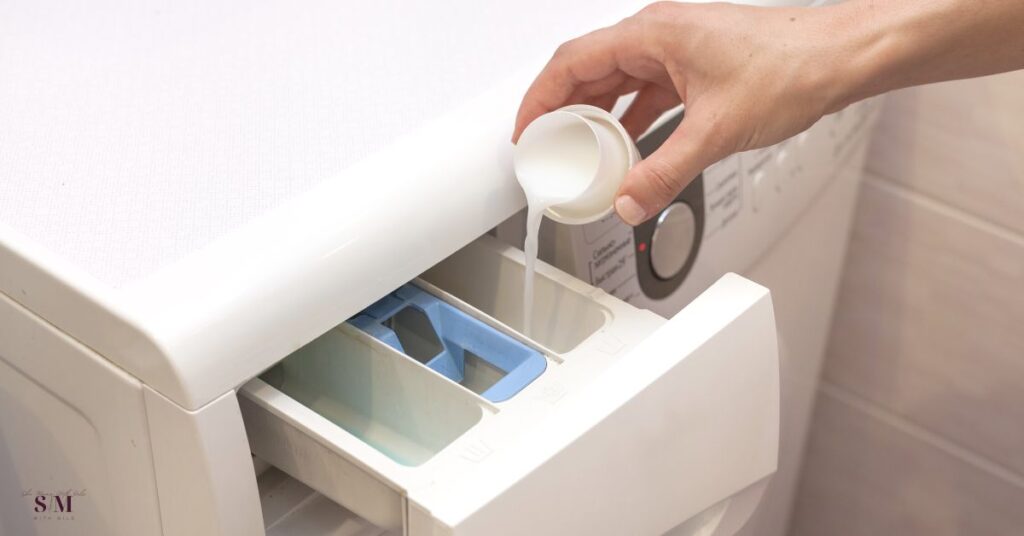
Does vinegar damage washing machines?
Using large amounts of vinegar in your machine on a regular basis can damage it. Vinegar is acidic and if used incorrectly, it can indeed damage the parts that prevent your washing machine from leaking.
That is not to say you shouldn’t use it.
If you use it correctly, you will achieve great results with your laundry and you will not damage your appliance.
For best results:
- Only use 1 tablespoon of vinegar per load of laundry;
- Stick to white vinegar and do not use any other type;
- Use vinegar in the final rinse cycle only, and do not mix it with detergent or baking soda.
Can I use hair conditioner as fabric softener?
I personally have never used it, so I cannot recommend this method.
Although many website will have recipes that use hair conditioner as an ingredient for homemade non toxic fabric conditioner, I do not find the idea appealing to be honest.
Naturally, feel free to do a little search online and see if you find any recipe you like.
Can I mix baking soda and vinegar for laundry?
Just like mentioned above about mixing laundry detergent and vinegar, it is not a good idea to combine vinegar and baking soda.
If used together, they will neutralise each other. That means, they will be completely useless in your laundry.
I wrote this post about a DIY recipe for an all natural laundry scent booster. If you are using this recipe, skip the vinegar in the rinsing cycle, as the scent booster will be enough to perfume your clothes and leave them soft!
Is baking soda or vinegar better for laundry?
I feel there is no real answer to this question.
Both ingredients are excellent additions to your all natural laundry.
According to this article from the Readers Digest: “Baking soda in the laundry can be a great addition for a natural fabric softener or controlling excess suds, while vinegar in laundry can be an amazing agent for getting those whites extra sparkling and banishing mildew odor.”.
Maybe you could try both, and see what you prefer.
BEST HOMEMADE NON TOXIC FABRIC SOFTENER RECIPE: CONCLUSIONS
Thank you for reading this far! I hope to have inspired you to try an all natural alternative to your laundry routine.
Although it might seem hard to swap to natural ingredients, I promise you it is not.
Take your time and start by replacing one item at the time. You will be amazed at the results!
As always, feel free t leave a comment in the section below. I’d love to hear from you.
Till next time, Dee.
IMPORTANT
When using Essential Oils, make sure to use only CPTG Certified, Pure, Tested Grade ones, like Doterra Essential Oils. The content of this blog post and any information provided here has not been evaluated by the FDA (Food and Drug Administration), any government entity or medical practitioner. It is NOT intended to diagnose, treat, cure or prevent any disease, illness or condition. It is NOT intended to be a substitute for medical counselling. If you are pregnant, breastfeeding, or suffering from any medical condition or illness or injury, you SHOULD consult a qualified healthcare professional before using any product.
Hi, I’m Dee!
Mom of three; printables creator, natural solutions, simple living and homemade food enthusiast; “Outlander” fanatic.
When I’m not busy writing and designing, you can always find me covered in a cloud of flour in the kitchen, playing and crafting with my children, or making up some blends with my Essential Oils. Also I’m practically obsessed with Crystals and reading during my spare time.
Come along on our crazy journey as a family living in the countryside of Ireland!
